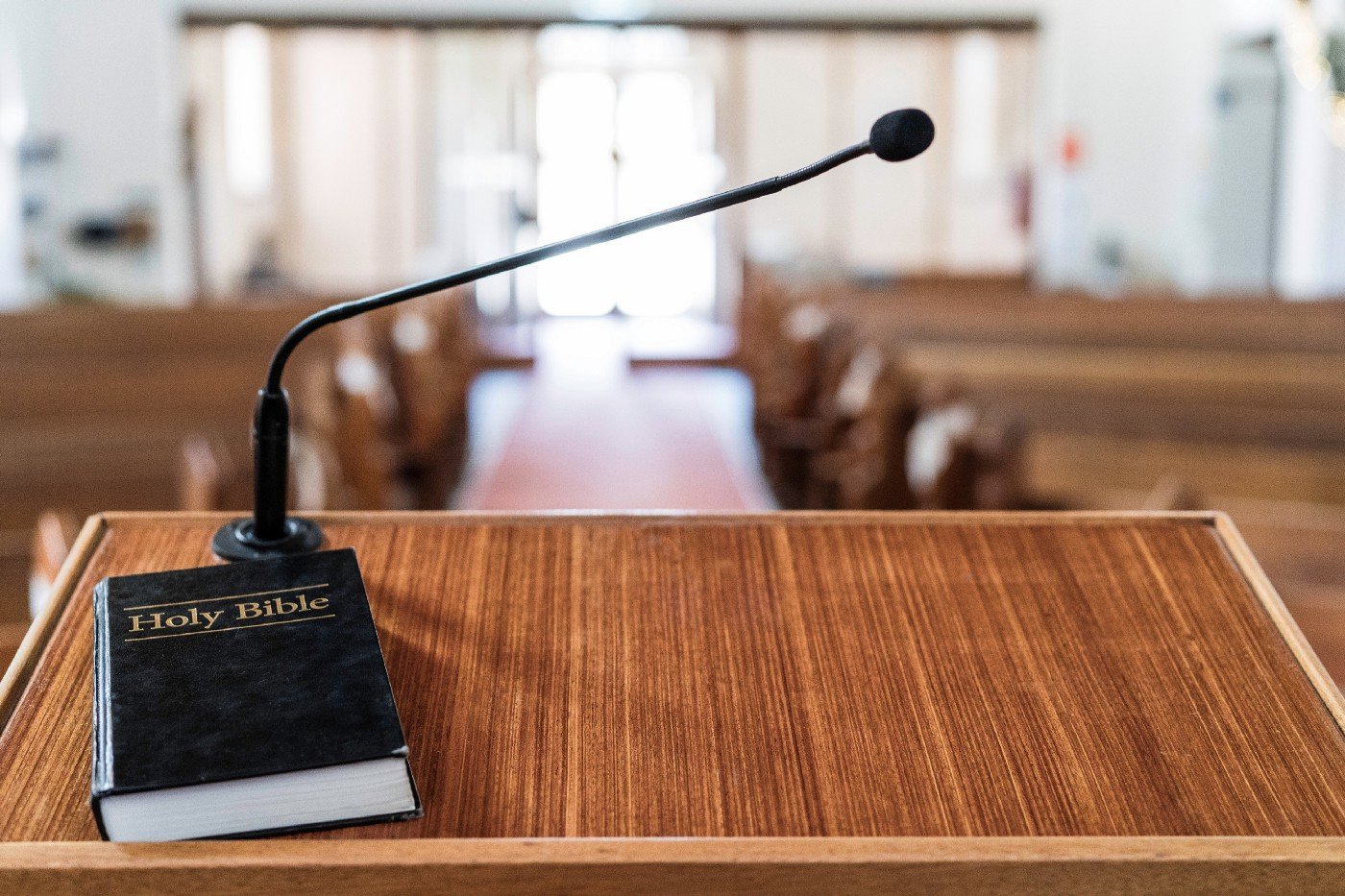Her Voice: Unveiling the Power of Women in the Church
A Bible on a pulpit. Photo credit: https://www.janiecerenee.com/blog/women-preachers-why-are-we-still-talking-about-this
By: Emma Travers
The question of women leadership in the church has been debated for centuries. As society grows to accept women's voices, the question resurfaces: Should women hold a position of power in the church?
Why shouldn’t women hold power in the church? I believe women should have the same opportunities as men when it comes to leadership roles in the church. That’s why I decided to dive deeper into this topic.
The debate over a woman’s role in the church is highly controversial and centers around whether women should be able to hold leadership roles like pastors or elders.
There are two main viewpoints over this topic, an Egalitarian view and a Complementarian view. Those with the Egalitarian view believe that women should be allowed to hold a leadership role within the church, and those with a Complementarian view believe that only men hold the right to a leadership role.
I didn’t fully understand the controversy until just recently when I attended a Conference about Missions in Kentucky. The Conference was mostly Baptist run, while myself and the people I attended with were all Presbyterian . (These denominations are the same within the thought that they believe in one God, but there are little differences found in their belief statements. You can find more information from the links above.)
One speaker I sat and listened to was Southern Baptist and explained that while women are important, they have no place in leadership within a church body. When I heard this I raised an eye. I have grown up in a Presbyterian Church where women are allowed to be elders, and while we have never had a women pastor we are open to having one. Meaning it is an Egalitarian church.
I think that’s why this topic is so important to me. Growing up in a Presbyterian church, I saw firsthand the women in my church who are elders and always looked up to them. If men are allowed to do these things, why can’t I?
When I got back to Oklahoma I realized more than ever that there are far more Baptist churches than any other denomination in this state. According to Pew Research the state of Oklahoma is 79% Christian, with 23% of that being the Baptist church.
Baptists are not the only denomination with a Complementarian view, others include the Lutheran and Catholic churches. And others with the Egalitarian view include the Methodist, Mennonites, and Assemblies of God churches. If you wanted a more in depth look at the different denominations within each belief look here.
Now these opinions don’t just come from dirt, there are specific Bible verses that each church uses to back up their beliefs. Egalitarians use verses from Genesis 1 and 2 that say women and men were created equal and were both given rule over the keeping of the Earth as Biblical support. Complementarians use a specific verse from 1 Timothy 2 to back up their views. In the NIV version of the Bible, 1 Timothy 2:13 says “I do not permit a woman to teach or assume authority over a man; she must be quiet.” This one verse has become highly controversial itself, because of the ever changing culture we live in.
The Complementarian-Egalitarian debate is not going away for the foreseeable future. I have known people on both sides, and have done my share of research about each side. I am no Theologian, and don’t have as much knowledge as those that have done in depth research on this topic, but I am passionate. While I understand where the Complementarians are coming from, I also believe that women should have the opportunity to live a life as a pastor or elder if that is what they are being called to do. Women have played a significant role in the church throughout the Bible, and I believe they can, and will, continue to bring a unique perspective to the leadership of a church.
